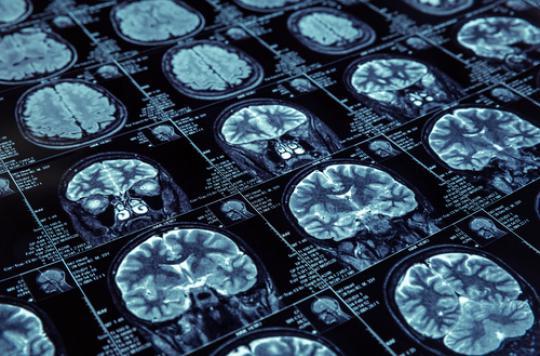People suffering from the early stages of Alzheimer’s disease are said to have leaks at the blood-brain barrier.

The loss of tightness of the blood-brain barrier is one of the key mechanisms in the early stages of Alzheimer’s disease, according to a dutch study published this Tuesday in the review Radiology. Researchers at Maastricht and Leiden University have identified this porosity in patients using magnetic resonance imaging.
The blood brain barrier is a cellular structure that separates the brain from the bloodstream. This anatomical obstacle acts as a filter by allowing nutrients essential for the proper functioning of the brain to pass through and block the passage of neurotoxins and other harmful molecules.

The brain has lost its means of protection
Dutch scientists studied the brains of 16 sick and 17 healthy people using MRI scans. Using contrast media, they were able to measure the number of breaches in the blood-brain barrier. As a result, they were more numerous in people with Alzheimer’s disease than in the other participants. The leaks were particularly important at the level of gray matter, especially in the superficial part of the brain, the cortex. Lesions were also observed in white matter.
“These leaks in the blood-brain barrier mean that the brain has lost its means of protection,” explains Walter Backes, a researcher at Maastricht University. The stability of neurons is disturbed and the environment in which they live begins to become harmful. This mechanism could eventually lead to brain dysfunction. “
Indeed, researchers have discovered a link between these leaks and cognitive decline, suggesting that a weakened blood-brain barrier contributes to the development of Alzheimer’s disease. It could also be part of an event cascade leading to dementia.
.

















